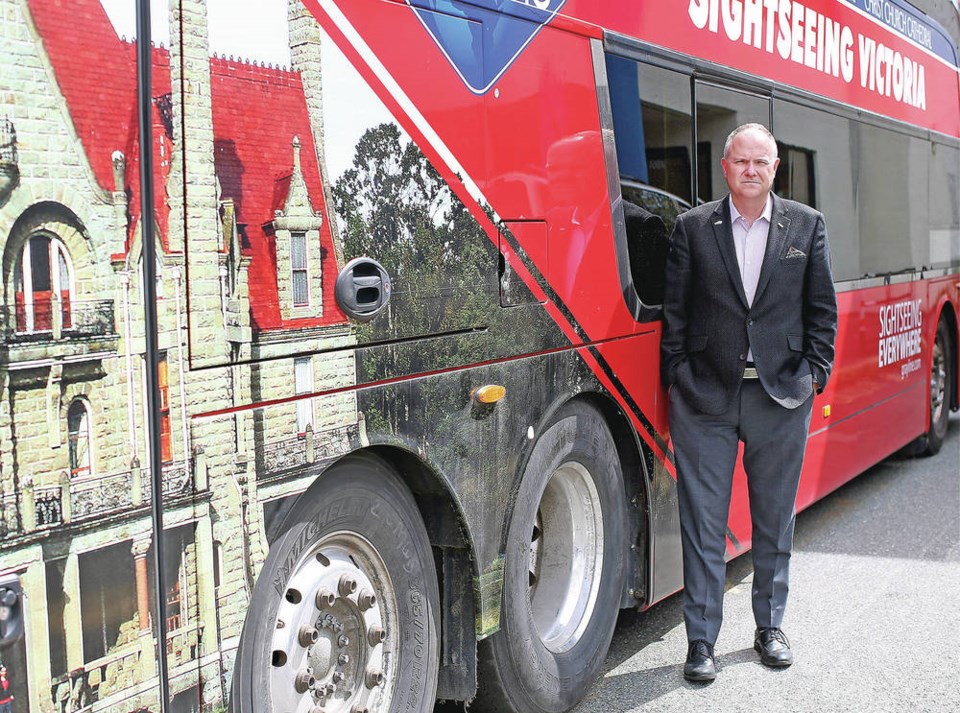The province’s motor coach sector is calling for immediate help to ensure it survives to be part of next year’s economic recovery.
The newly minted B.C. Motor Coach Coalition, formed by 12 private firms, says some companies will not be around if there’s no help on the horizon.
“The simple fact is the federal government and province need to give us some help to keep this industry alive or it just won’t be here,” said John Wilson, president of the Wilson Group of Companies. “And I’m not talking about [closures] six months away. I’m talking about three months. They need to do something to help get some liquidity in the system for all of us.”
The sector is asking for commercial rent relief, support of as much as $50,000 per bus, extension of the wage subsidy until international travel, cruise ships and event restrictions are lifted, a grant system that’s pared back as revenue returns, and flexible insurance options.
“We’re looking for more grants and expense relief and things like that,” Wilson said. “We’re certainly not looking to add more debt to the books.”
Asked about federal relief programs, Wilson said the low-interest loans and wage subsidies offered so far have been helpful for many businesses, but have done little for his sector, as the loans merely pile on debt for companies that already have plenty of it, and wage subsidies only help companies that are able to operate.
Wilson said implementing the kinds of measures the coalition is pushing should help most companies remain solvent until recovery can begin.
“Recovery efforts are all well and good, but when they start making transportation plans, if the motor coach companies aren’t here to do the work, we are in for a big problem,” he said, noting it will affect passengers on B.C. Ferries’ sailings, tourism to Butchart Gardens or staging of any kind of big event that draws international groups.
The motor-coach sector was one of the sectors hit first and hardest by the COVID-19 pandemic.
According to the coalition, total revenues have dropped by 95 per cent, most companies have parked 95 per cent of their fleets and nearly 70 per cent of the companies have laid off workers.
“It’s time for targeted help,” said Wilson, noting much of the relief effort so far has been spread broadly around the country.
He said he would like to see a focused effort going to companies that have been hurt the most and will take the longest to recover.
The motor-coach sector has traditionally been represented by the B.C. Trucking Association, but Wilson said the two sectors are having very different experiences during the pandemic. While trucks are in hot demand to move goods, buses have been idled without tourism, charters, athletic teams and community groups travelling.
aduffy@timescolonist.com



